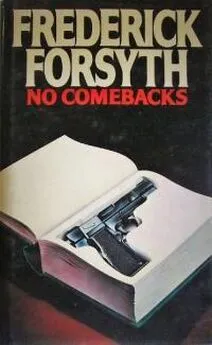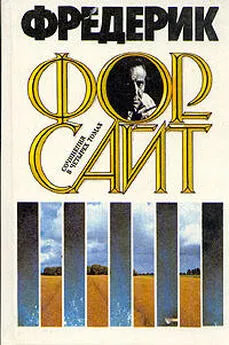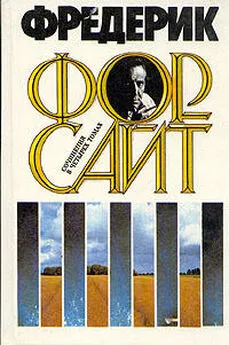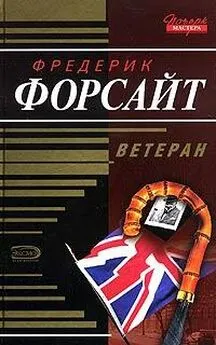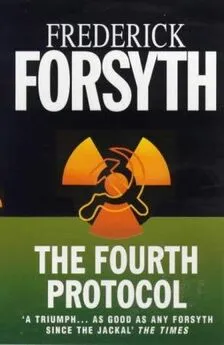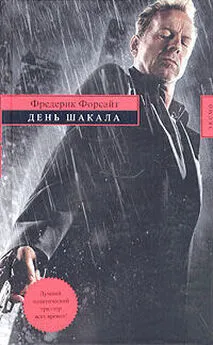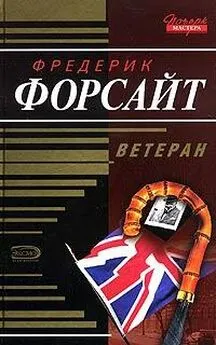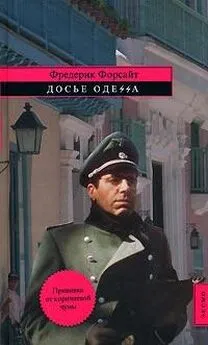Фредерик Форсайт - Нет возврата
- Название:Нет возврата
- Автор:
- Жанр:
- Издательство:Hutchinson
- Год:1982
- Город:London
- ISBN:0-09-147870-7
- Рейтинг:
- Избранное:Добавить в избранное
-
Отзывы:
-
Ваша оценка:
Фредерик Форсайт - Нет возврата краткое содержание
Перед Вами сборник из 10 рассказов, держащих читателя в напряжении, посвященных изменам, шантажу, убийствам и мести, кульминации которых шокируют неожиданными поворотами судеб. На этих страницах оживают персонажи, которых Вы не скоро сможете забыть. Живые люди бесповоротно оказываются в мире, из которого уже нельзя вернуться, если перейти "точку невозврата", перейдя от простого манипулирования покупкой и продажей человеческой жизни к смертельным актам насилия. Содержание:
1. Никаких улик
2. В Ирландии не водятся змеи
3. Император
4. Бывают же дни…
5. Шантаж
6. Used in Evidence - англ.
7. Абсолютная привилегия
8. Долг
9. A Careful Man - англ.
10. В дураках
Нет возврата - читать онлайн бесплатно полную версию (весь текст целиком)
Интервал:
Закладка:
'We can't wait that long,' shrilled Mrs Armitage. Her social take-off was beginning to look like a cold start. 'There must be a quicker way.'
'Hey, what about a private detective?' suggested Armitage junior.
'Could you employ a private detective?' asked Mrs Armitage.
'I prefer the term private inquiry agent,' said Pound. 'So do they. Yes, it is possible. I have in the past had occasion to use a very respected such agent in tracing missing beneficiaries. Now it appears the beneficiaries are present but the estate is missing. Still …'
'Well, then get on to him,' snapped Mrs Armitage. 'Tell him to find where the damned man put all his money.'
Greed, thought Pound. If only Hanson could have guessed how greedy they would turn out to be.
'Very well. There is however the question of his fee. I have to tell you that of the five thousand pounds that was allocated for all expenses, rather little remains. The outgoings have been heavier than usual… And his services are not inexpensive. But then, he is the best…'
Mrs Armitage looked at her husband. 'Norman.'
Armitage senior swallowed hard. He had mental images of his car and the planned summer holiday being forfeit. He nodded. 'I'll… er… take care of his fees when the remaining money from the five thousand pounds is exhausted,' he said.
'Very well, then,' said Pound rising. 'I shall engage the services of Mr Eustace Miller and him alone. I have no doubt he will trace the missing fortune. He has never failed me yet.'
With that he showed them out and retired to his office to ring Eustace Miller, private inquiry agent.
For four weeks there was silence from Mr Miller, but not from the Armitages, who bombarded Martin Pound with their ceaseless clamours for a quick location of the missing fortune to which they were entitled. At last Miller reported to Martin Pound to say that he had reached a watershed in his inquiries and felt he should report his progress to date.
Pound was by this time almost as curious as the Armitages so he arranged a meeting at his office.
If the Armitage family had expected to confront a figure in the mould of Philip Marlowe or any other popular conception of a tough private eye, they were doomed to disappointment. Eustace Miller was short, round and benign, with tufts of white hair round an otherwise bald head, and half-moon glasses. He wore a sober suit with a gold watch chain across the waistcoat, and he rose to his not very great height to present his report.
'I began this inquiry,' he said, surveying them all in turn over the top of His half-moons, 'with three assumptions in mind. One was that the late Mr Hanson had gone through his extraordinary performance in the months before he died with complete deliberation and a firm purpose. Secondly, I believed, and still do, that Mr Hanson's purpose was to deny his apparent inheritors and the Commissioners of Inland Revenue any access to his fortune after his death.
'The old bastard,' snapped Armitage junior.
'He need not have left it to you in the first place,' interposed Pound mildly. 'Do proceed, Mr Miller.'
'Thank you. Thirdly, I presumed that Mr Hanson had neither burned the money nor undertaken the considerable risks of trying to smuggle it abroad, bearing in mind the enormous volume that such a large sum would occupy in cash form. In short, I came to the view that he had bought something with it.'
'Gold? Diamonds?' asked Armitage senior.
'No, I examined all these possibilities and after intensive inquiries ruled them out. Then I found myself thinking of another kind of commodity of great value but relatively small bulk. I consulted the firm of Johnson Matthey, dealers in precious metals. And I found it.'
'The money?' chorused the three Armitages together.
'The answer,' said Miller. Enjoying his moment he drew from his attache case a wad of pieces of paper. 'These constitute sales documents for the purchase by Mr Hanson from Johnson Matthey of two hundred and fifty fifty-ounce ingots of high-grade 99.95 per cent pure platinum.'
There was a stunned silence round the table.
'It was not, frankly, a very clever ruse,' said Mr Miller with some regret. 'The buyer may have destroyed all record of his purchases, but obviously the vendor would not destroy his records of the sales. And here they are.'
'Why platinum?' queried Pound faintly.
'That's interesting. Under the present Labour government you need a licence to purchase and hold gold. Diamonds are instantly identifiable within the trade and not nearly as easy to dispose of as one would gather from some ill-informed thriller fiction. Platinum does not need a licence, is presently about the same value as gold, and apart from rhodium is one of the most valuable metals in the world. When he bought the metal he paid the free market price of five hundred American dollars per fine ounce.'
'How much did he spend?' asked Mrs Armitage.
'Nigh on the whole three million pounds he had secured for all his worldly goods,' said Miller. 'In US dollars — and his market is always calculated in US dollars — six and a quarter million dollars; twelve and a half thousand ounces in all. Or, as I said, two hundred and fifty ingots each of fifty fine ounces weight.'
'Where did he take them all?' Armitage senior demanded.
'To his manor in Kent,' said Miller. He was enjoying his moment and was aware with anticipatory pleasure that he had more to reveal.
'But I have been there,' protested Pound.
'With a lawyer's eye. Mine is that of an investigator,' said Miller. 'And I knew what I was looking for. So I did not start with the house, but with the outbuildings. Are you aware that Mr Hanson had an extremely well-equipped carpentry workshop in a former barn behind the stables?'
'Certainly,' said Pound. 'It was his hobby.'
'Precisely,' said Miller. 'And it was here I concentrated my efforts. The place had been scrupulously cleaned; vacuum-cleaned.'
'Possibly by Richards, the chauffeur/handyman,' said Pound.
'Possibly, but probably not. Despite the cleaning, I observed stains on the floorboards and had some splinters analysed. Diesel fuel. Pursuing a hunch, I thought of some kind of machine, an engine perhaps. It's small enough market and I found the answer within a week. Last May Mr Hanson bought a powerful diesel-fuelled electric generator and installed it in his workshop. He disposed of it for scrap just before he died.'
'To operate his power tools, no doubt,' said Pound.
'No, the ring main was strong enough for that. To operate something else. Something that needed enormous power. In another week I had traced that too. A small, modern and very efficient furnace. It too is long gone, and I have no doubt the ladles, asbestos gloves and tongs have been dumped at the bottom of some lake or river. But, I think I may say I was a little more thorough than Mr Hanson. Between two floorboards, jammed out of sight and covered by compacted sawdust, no doubt just where it had fallen during his operations, I discovered this.'
It was his piece de resistance and he drew out the moment. From his case he took a white tissue and slowly unwrapped it. From inside he held up a thin sliver of congealed metal that glittered in the light, the sort of sliver that must have dribbled down the side of a ladle, coagulated and dropped off. Miller waited while all stared at it.
'I have had it analysed of course. It is high-grade 99.95 per cent pure platinum.'
'You have traced the rest?' whispered Mrs Armitage.
'Not yet, madam, but I shall. Have no fear. You see Mr Hanson made one great mistake in selecting platinum. It has one property that he must have underestimated and yet which is quite unique. Its weight. Now at least we know what we are looking for. A wooden crate of some kind, apparently innocent to look at, but — and this is the point — weighing just under half a ton…
Mrs Armitage threw back her head and uttered a strange raucous cry like the howl of a wounded animal. Miller jumped a foot. Mr Armitage dropped his head forward into his hands. Tarquin Armitage rose to his feet, his spotty complexion brick red with rage, and screamed, 'That bloody bastard.'
Martin Pound stared unbelievingly at the startled private investigator. 'Good Lord,' he said. 'Oh, my goodness me. He actually took it with him.'
Two days later Mr Pound informed the Inland Revenue of the full facts of the case. They checked the facts and, albeit with an ill grace, declined to pursue.
Barney Smee walked happily and with a brisk pace towards his bank, confident he would just get there before they closed for the Christmas holiday. The reason for his pleasure was tucked inside his breast pocket: a cheque for a quite substantial sum, but only the last of a series of such cheques that over the past few months had ensured him a much higher income than he had ever managed to earn in twenty years in the risky business of dealing in scrap metals for the jewellery industry.
He had been right, he congratulated himself, to take the risk, and it had undeniably been a high one. Still, everyone was in the tax-dodging business nowadays and who was he to condemn the source of good fortune simply because the man had wished to deal only in cash? Barney Smee had no difficulty in understanding the silver-haired investor who called himself Richards and had a driving licence to prove it. The man evidently had bought his 50-ounce ingots years before, when they were cheap. To have sold them on the open market through Johnson Matthey would beyond doubt have secured him a higher price, but at what cost in capital gains tax? Only he could have known and Barney Smee was not one to probe.
In any case, the whole trade was rife with cash deals. The ingots had been genuine; they even bore the original assay mark of Johnson Matthey, from whom they had once come. Only the serial number had been blazed out. That had cost the old man a lot, because without the serial number Smee could not offer him anything near fair market price. He could only offer scrap price, or producer's price, about 440 US dollars an ounce. But then, the serial numbers would have identified the owner to the Inland Revenue, so maybe the old man knew his onions after all.
Barney Smee had got rid of all fifty eventually, through the trade, and had made a cool ten dollars an ounce for himself. The cheque in his pocket was for the sale of the last of the deal, the ultimate two ingots. He was blissfully unaware that in other parts of Britain another four like himself had also spent the autumn filtering fifty 50-ounce ingots each back into the market through the second-hand trade, and had bought them for cash from a silver-haired seller. He swung out of the side street and into the Old Kent Road. As he did so he collided with a man descending from a taxi. Both men apologized to each other and wished each other a merry Christmas. Barney Smee passed on his contented way.
The other man, a solicitor from Guernsey, peered up at the building where he had been dropped, adjusted his hat and made for the entrance. Ten minutes later he was closeted with a somewhat mystified Mother Superior.
'May I ask, Mother Superior, whether Saint Benedict's Orphanage qualifies as a registered charity under the Charities Act?'
'Yes,' said the Mother Superior. 'It does.'
'Good,' said the lawyer. 'Then no infringement has taken place and there will be no application in your case of the capital transfer tax.'
'The what?' she asked.
'Better known as the "gift tax",' said the lawyer with a smile. 'I am happy to tell you that a donor whose identity I cannot reveal, under the rules of confidentiality governing business between client and lawyer, has seen fit to donate a substantial sum to your establishment.'
Читать дальшеИнтервал:
Закладка:
